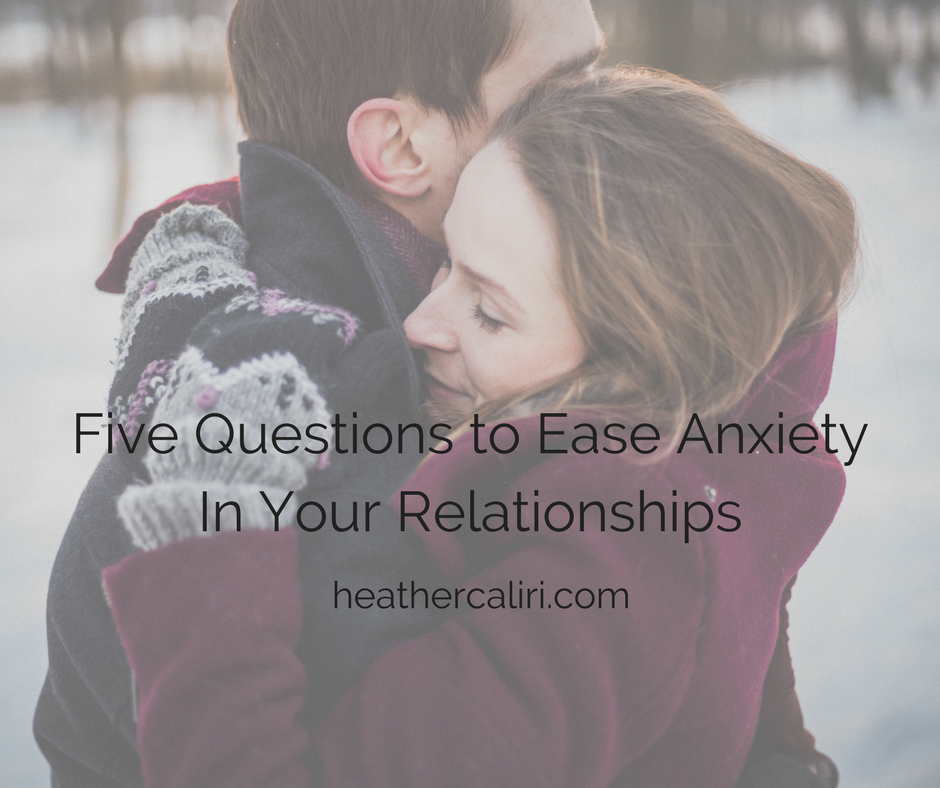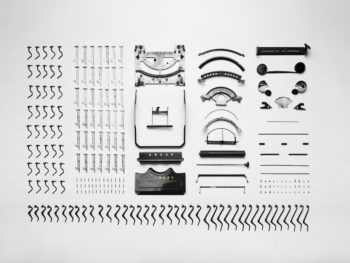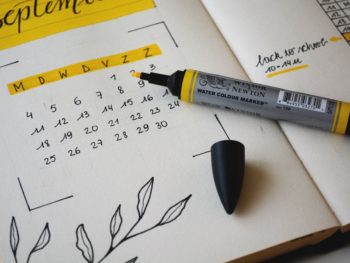
Want to read this entire series? Go here.
If you suffer from anxiety, it’s tempting to view it as if it were an addiction we bring only on ourselves. I thought this way for a long time—if I were a better, stronger, more intentional person, I’d be able to stop feeling anxious all on my own.
However, anxiety isn’t an addiction. It’s better described as a warning signal. It’s your brain’s way of telling you that something is unsafe or frightening.
In some cases, the warning signal malfunctions due to a chemical imbalance in the brain, or because of past trauma, triggered by situations that are long over.
But anxiety also signals unsafe situations now. In that case, the anxiety won’t disappear unless you deal with the thing that’s unsafe.
Unfortunately, sometimes that’s our relationships. Unless you can make them safer, the warning signals won’t stop flashing, however intentional you are.
Dusting Your Burning House
I’ve gotten email after email from readers telling me, “I want to stop feeling afraid about [describes a frightening/abusive situation]. Will you pray I have more bravery?”
This is kind of like saying, “I’d like to be able to breathe better in my burning house. Could you pray I have the fortitude to dust every week so I can eliminate allergens?”
If you can’t breathe because your house is burning, you need to put out the fire or leave the house, not put a better housecleaning schedule in place.
Naiveté about Relationships
I used to think that most adult relationships were generally healthy. I think I was naïve. Many of us actually don’t have good relationship skills unless we intentionally learn new ones. I mean, why would we? Most families are dysfunctional; we can’t magically get good relationship skills if we just parrot what we experienced growing up.
Dysfunction looks normal to most us—whether we’re unhealthy, or our siblings, parents, friends, or spouses are. This means recognizing and ading poor relationship skills is hard.
The very best place to explore relationship skills is in therapy, or through materials written by actual therapists. But you’re here, and we’re talking about anxiety. Plus, it can be daunting to start therapy unless you’re convinced you have no other choice.
So my hope in this series is to help you to recognize when professional help is necessary, and to give yourself permission to seek it without waiting until your hair is on fire.
In that spirit, I’m going to share five questions I started asking myself that helped me figure out why various relationships made me anxious.
It has helped a ton to realize that if people make me anxious, I might have very good reason to feel that way. It isn’t a personal failing to feel unsafe around unsafe people. In fact, it’s a blessing of safety and self-preservation. It is a fire alarm waking us up from slumber.
(It’s important to remember that most unsafe people honestly do not intend to hurt us. Like I said, most of us learn unhealthy skills as kids. We’re all doing our best in a very confusing world).
Over the next few posts, I’m going to share some questions that have helped me understand why some relationships made me anxious. I hope they help you recognize that anxiety can be a healthy reaction, not a personal failing.
Question 1: If the person I love hurts me, will they listen to my anger and hurt, empathize with my experience of them, and repent of their wrongdoing?
Look, we all make mistakes in relationships. I myself have been verbally abusive, mistreated good friends, and been passive aggressive, along with a lot of other nonsense. I make mistakes all the time.
The hallmark of safe people, though, is that we admit our wrongdoing and pursue reconciliation.
It’s hard to repent. It takes a lot of humility and empathy. You have to be willing to see your own mistakes. You have to be able to listen to someone’s point of view even if it makes you feel lousy.
Without repentance, there’s no reconciliation, and no healthy relationship. Someone who doesn’t repent will make you feel unsafe and anxious—for very good reason.
So, if someone makes you feel anxious, ask yourself these questions.
- When you tell them they’ve hurt you, do they take you seriously? Or do you have to prove that you have the right to complain, since they invariably question your judgement?
- Do they make excuses for their behavior, saying they couldn’t have done differently, you’re expecting too much of them, or it couldn’t be helped?
- Do they repeat back what you’re saying to make sure they’re hearing you accurately? Or do they misinterpret what you’ve said over and over?
- Do they tell you that God told them to do what they did, so you can’t complain?
- Do they change the subject and tell you what you (or other people) have done to hurt them, never ading your complaint?
- Do they offer superficial apologies but continue hurting you without acknowledging underlying unhealthy patterns?
Healthy people take disagreements, mistakes, and misunderstandings seriously, and pursue reconciliation and repentance headlong until the relationship is repaired.
Unhealthy people deflect, dismiss, or minimize complaints, refusing to take responsibility for their actions.
I wish these patterns were uncommon, but they’re not. I myself have done some of them. You don’t have to be a terrible, awful person to do them—they’re very human.
That doesn’t mean that they’re okay.
What to Do If Someone Never Apologizes
If someone does not ad and heal hurt, you will feel anxious around them unless you set up firm boundaries. This is where a therapist is really helpful.
Again, feeling anxious around people who have hurt you is actually healthy. It only becomes unhealthy if you don’t set up any boundaries to keep them from hurting you again.
Take responsibility for your anxiety, sure. But make sure you’re not ignoring how it warns you when you’re not safe.
In other words, if your house is burning, ad the fire—don’t work harder to dust the shelves.













 “Do We Not Bleed”, a book review for The Englewood Review of Books
“Do We Not Bleed”, a book review for The Englewood Review of Books